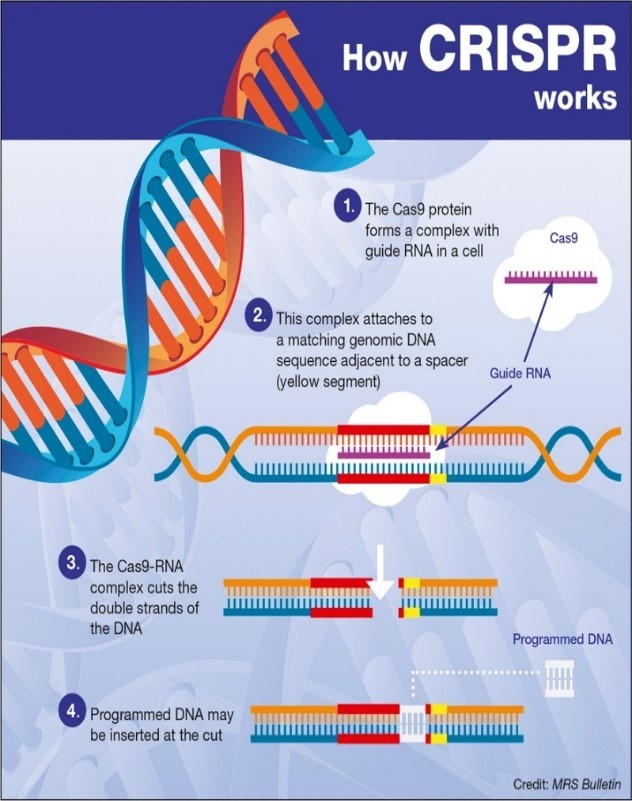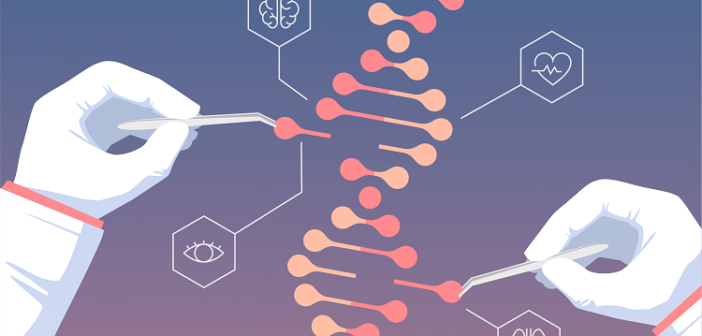By Lester Williams Jr
The War on Diseases Has a New Weapon in Development
For decades, scientists have waged war on microscopic diseases, and now, the scientific field is experimenting with a new tool that, within time, might be added to its arsenal.
CRISPR, short for Clustered Regularly Interspaced Short Palindromic Repeats, is a section of DNA that is used in the immune system of bacteria. It was originally discovered as early as 1987; however, its discovery was officially credited in 2012 by two researchers, Emmanuelle Charpentier and Jennifer Doudna.
Dr. Iain Duffy, Assistant Professor of Biology at Saint Leo University, has over 40 years of experience working in the field of science with an honors degree in microbiology from the University of Cork in Ireland.
Dr. Duffy explained that CRISPR—because it can recognize parts of a virus’ genetic makeup—is now being tested as a tool for genetic engineering, which looks at modifying an organism’s physical and genetic traits through manipulating DNA. Additionally, CRISPR has the potential to change the human genome, which contains all the cells in the body.
DNA manipulation has many benefits, including preventing genetic diseases and proteins from being made or being mutated, as well as it can possibly cure or even replace genes that have already been mutated.
Besides its potential applications in the medical field, CRISPR has far-reaching applications in biological research. By manipulating DNA sequences, researchers can see the effects the technique has on different cells in the human body.
In 2019, an experiment was conducted at the University of Nebraska Medical Center, located in Omaha, Nebraska, involving mice infected with HIV that were subsequently treated using CRISPR. The results show CRISPR was unable to successfully remove HIV from the mice proving further research was needed.

CRISPR is complex, but it makes fighting diseases more simple.
Despite CRISPR’s large potential, its research is still in early development as of 2019. Due to this, the extent of CRISPR’s impact is still unknown in the science community. However, according to Dr. Duffy, who is in support of CRISPR, scientists are still researching even more ways of using it.
CRISPR has a promising future in the fight against diseases, but will soon face ethical restraints on its list of applications. The ethical issues are caused by CRISPR’s capabilities in various biological situations, such as rewriting the genome of unborn babies to prevent them from developing genetic disorders or changing their DNA in such a way to meet, for example, a societal standard.
According to the article, “Human Germline Genome Editing”, article various groups including the American Society of Human Genetic responding to the ethical concerns with this comment, ‘At this time, given the nature and number of unanswered scientific, ethical, and policy questions, it is inappropriate to perform germline gene editing that culminates in human pregnancy.’ This quote shows that CRISPR is still in the infancy stage, and is not suited for human trials.
Despite the ethical concerns that have been brought up from organizations such as the European Union, some researchers still argue for continued use of CRISPR. The article, “CRISPR-Cas9 and the Promise of a Better Future” looks into some of the arguments made by researchers such as, ‘that continued research will contribute to more scientific accuracy; thus, the precautionary principle should promote regulated research to achieve this aim.’
Although CRISPR has a long way to go, its presence in the field of science is ever-expanding, Dr. Duffy who believes that CRISPR has ‘a lot of potential use’ mentioned how the university has added it to the curriculum for the first time starting in the 2019 – 2020 academic year, and he will be teaching his Biotechnology class CRISPR.





